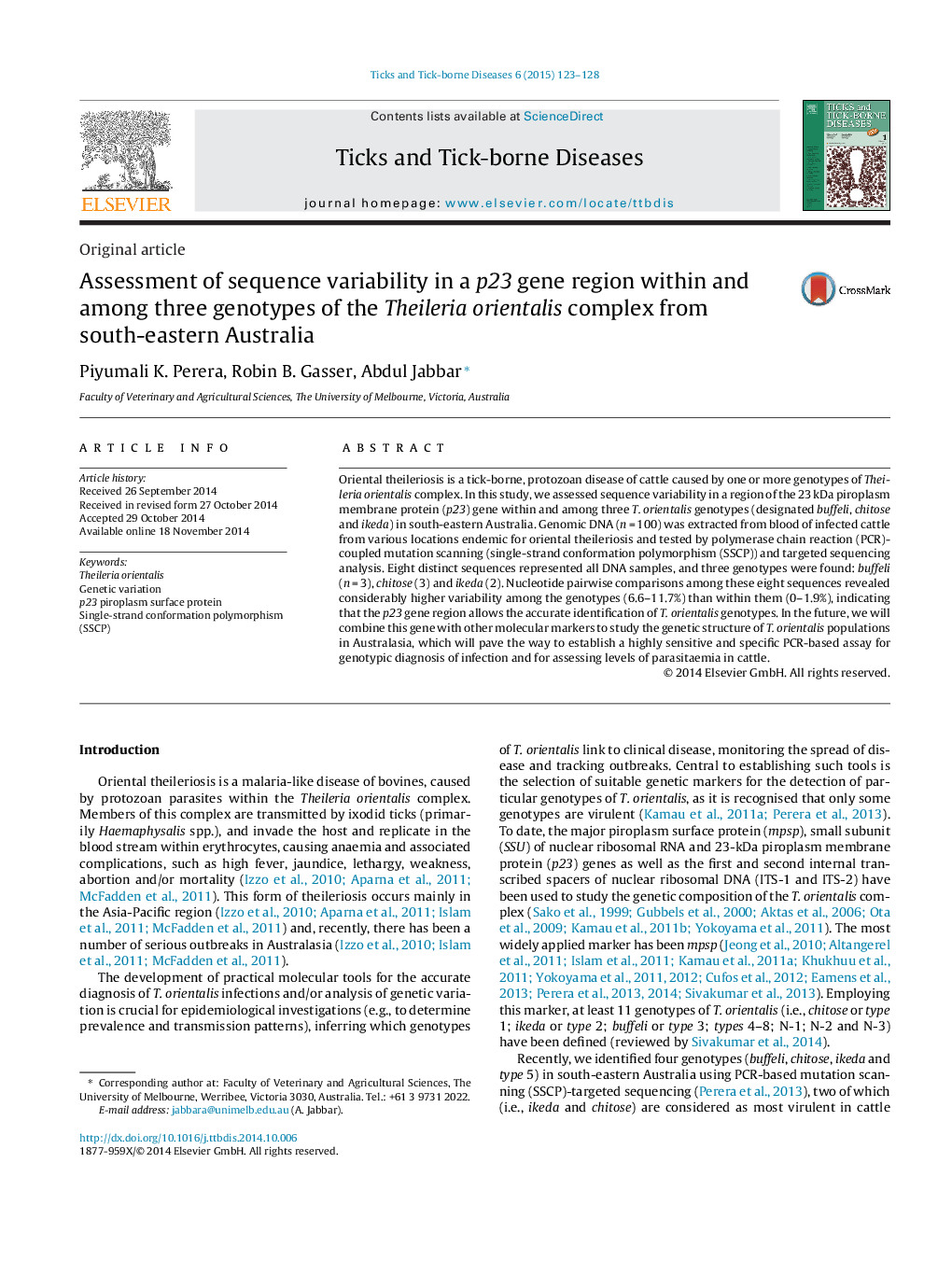| Article ID | Journal | Published Year | Pages | File Type |
|---|---|---|---|---|
| 5807079 | Ticks and Tick-borne Diseases | 2015 | 6 Pages |
Oriental theileriosis is a tick-borne, protozoan disease of cattle caused by one or more genotypes of Theileria orientalis complex. In this study, we assessed sequence variability in a region of the 23 kDa piroplasm membrane protein (p23) gene within and among three T. orientalis genotypes (designated buffeli, chitose and ikeda) in south-eastern Australia. Genomic DNA (n = 100) was extracted from blood of infected cattle from various locations endemic for oriental theileriosis and tested by polymerase chain reaction (PCR)-coupled mutation scanning (single-strand conformation polymorphism (SSCP)) and targeted sequencing analysis. Eight distinct sequences represented all DNA samples, and three genotypes were found: buffeli (n = 3), chitose (3) and ikeda (2). Nucleotide pairwise comparisons among these eight sequences revealed considerably higher variability among the genotypes (6.6-11.7%) than within them (0-1.9%), indicating that the p23 gene region allows the accurate identification of T. orientalis genotypes. In the future, we will combine this gene with other molecular markers to study the genetic structure of T. orientalis populations in Australasia, which will pave the way to establish a highly sensitive and specific PCR-based assay for genotypic diagnosis of infection and for assessing levels of parasitaemia in cattle.
